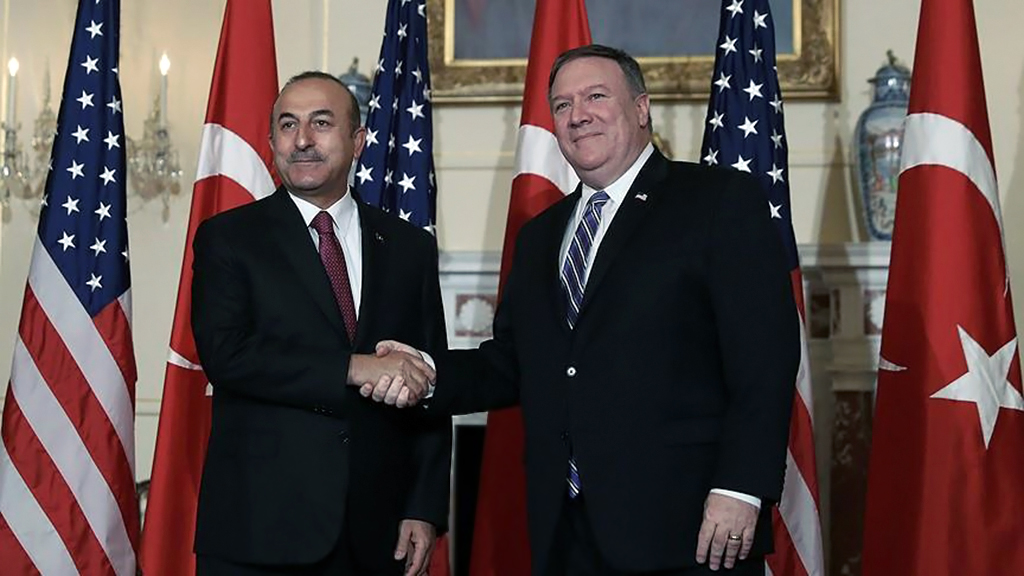
When bilateral relations depend on common sense
Ankara and Washington should immediately determine a new road map based on mutual interests in order to save their damaged ties
Share
There are so many possible scenarios regarding what happened behind closed doors between American and Turkish officials over the last few weeks. There have been rumors of negotiations, bargaining, misunderstandings, and unexpected and unprecedented heightening of discourse on the part of the U.S. Other than the leading foreign policy decision making in both countries, not many know the whole story. What we know today instead is the emergence of one of the worst crisis in bilateral relations in the last few decades. Several aspects of this crisis will have far-reaching consequences in the Turkish perception of the U.S. The threat posed by U.S. Vice President Mike Pence during his address in the Ministerial to Advance Religious Freedom at the U.S. State Department last week and the sanctions imposed on two ministers of Turkey will become a major part of the U.S.' image in Turkey.
As mentioned in a previous column, however, there are still potential steps that can be taken to contain the crisis and keep the damage to a minimum. U.S. Secretary of State Mike Pompeo and Foreign Minister Mevlüt Çavuşoğlu's meeting in Singapore was one of the first steps toward resolving the crisis between the two countries. In their statements, both diplomats expressed the significance of the alliance between Turkey and the U.S., and both sides signaled that this crisis should not impact the security relationship between the two countries. Considering the sensitivity of the situation in the Middle East and the increasing need for international cooperation against emerging threats, including non-state groups with radical ideologies, the foreign policy establishments and foreign policy decision makers agree that they have to work together on these issues.
Furthermore, the Manbij agreement that was reached following the meetings of the working groups of the two countries proves that diplomatic channels can, in fact, resolve these types of crises. So far, one of the most significant problems in the bilateral relationship was the lack of multiple layers of diplomatic relations between the two countries. In most instances, crises necessitate direct presidential intervention and engagement. This situation not only unnecessarily increases the agenda items for the presidents during their meetings, but also leads to the misunderstandings of the positions of other states.
However, of course the multilayered diplomatic approach should not lead to mixed or confusing messages between the two capitals. In the case of the U.S., the last few years have seen voices from different institutions lead to significant crises. The Turkish counterparts of officials from the U.S. received different signals and responses regarding very important issues. While increasing the number of foreign policy actors that can handle the crises, it is also important to provide coordinated mechanisms to prevent any cacophony on issues related to the national security of countries and the strategic partnership between the U.S. and Turkey. This latest crisis demonstrates the need for more sophisticated diplomatic mechanisms between the two capitals.
In addition to finding a solution for the problems and being more creative and innovative in providing options for foreign policy decision makers, this diplomatic mechanism also needs to provide timely information to the public in both countries. It is true that for some of the negotiations to reach a certain level of the fruition, there needs to be a certain level of discreteness; however, it is important to provide the public with information about the current state of relations between the two countries. A lack of information can lead to uncertainty and anxiety about the future of relations and provide a fertile ground for increasing speculation – which in most instances becomes sources of other crises.
Thus, the latest crisis has presented many points that should be analyzed according to how they affect bilateral relations. The reiteration of the strategic partnership between the two countries will not be sufficient without providing a road map for more effective cooperation. A solid strategic partnership will necessitate a strong crisis-proof diplomatic relationship.
[Daily Sabah, 5 August 2018]
Tags »
Related Articles






